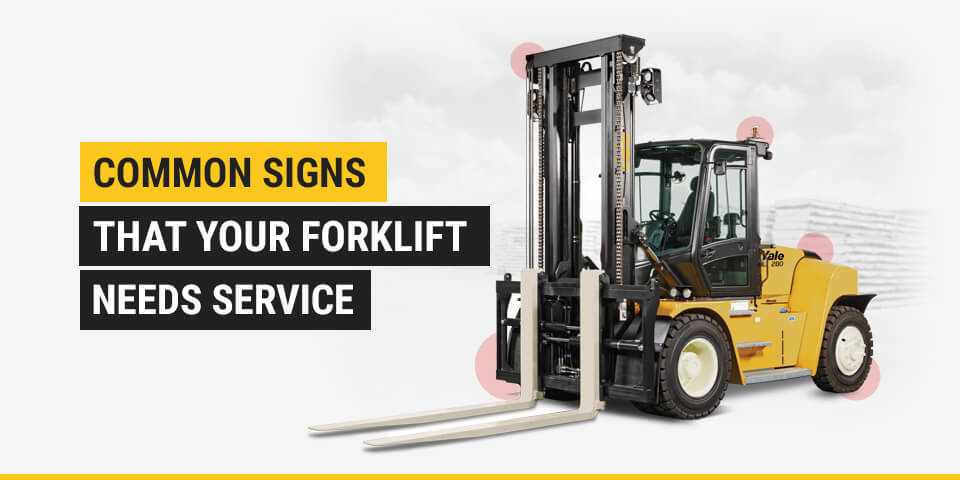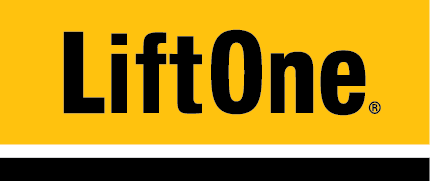
You need your forklift to work correctly for you, all day, every day. Over time, the constant lifting, loading, unloading, and transporting can take a toll on your trucks. This means regular service is required to keep your material handling fleet in peak operating condition, ultimately maximizing its life span. Scheduling planned maintenance is another crucial measure to take for protecting your operators and other warehouse employees.
Does My Forklift Need Service?
There are prognostic signs that indicate your vehicle requires attention. But there are subtle warnings to pick up on before it gets to the point of your vehicle breaking down or ending up with a hefty repair cost.
1. Faulty Forklift Brakes
Forklift brakes will wear down over time. Any of these situations indicate that it's time for service:
- Improper Maintenance: If maintenance at intervals at 500 and 2,000 hours have been missed, your brake components may fail prematurely.
- Inspection failure: Your pre-shift brake inspection should ensure that the brake pedal doesn't fall to the floor and the parking brake holds when pulled..
- Abrupt stopping: Applying the brakes should stop the forklift smoothly to prevent load unbalancing or tipping.
2. Tire Problems
The nature of a forklift's work and the type of tires it has equipped can determine the state of the tire. Cushion tires may develop flat spots due to making frequent sharp turns while carrying heavy loads and chunks due to dock plates & poorly maintained floors. Pneumatic (treaded) tires are prone to tread loss, chunking, and sidewall failure.
3. Warning Lights
Your forklifts have a dashboard similar to your car, that alerts an operator when there’s an issue.
A light can indicate anything from low brake fluid or the need to buckle a seat belt, to a potentially serious engine issue. It's important to have operators understand these indicators and contact a technician for inspection.
4. Leaks
Forklifts use engine oil, hydraulic fluid, coolant, brake fluid, and transmission fluid. A puddle, stain on the ground after removing a forklift from its parking space, or trail of moisture could mean that one of these essential liquids is leaking.
Low fluid levels or the need to refill a truck more frequently is another sign of a potential leak that requires some investigating.
5. Exhaust Fumes/Emissions
An internal combustion (gas, diesel, or propane) forklift will generate some exhaust. However, if you notice unusual fumes or clouds of smoke, there could be a problem with the exhaust system or the engine. Not only could these issues can pose health hazards to your people, it could indicate a sign of impending mechanical failure, so it's vital to find the cause and correct it quickly.
What Are the Consequences of Neglecting Forklift Service?
Responsible business managers should only want to use safe and functioning equipment for their operations. A neglected forklift typically develops numerous safety issues that put forklift operators and other warehouse employees at risk of accidents and injuries. Regular service can significantly reduce the likelihood of these incidents.
An inadequately serviced forklift can be detrimental to your operations in several ways. Underperforming equipment can prevent you from meeting productivity objectives, resulting in late customer shipments. In addition, you’ll have expensive repairs more frequently, ultimately hurting business's profitability. Furthermore, you'll have to replace your fleet sooner than planned, all due to the shorter equipment life span.
Does Your Forklift Need Service? LiftOne Can Help You Decide
As an experienced lift truck solutions provider, LiftOne knows what it takes to keep your trucks on the job and functioning safely. Our services include planned forklift maintenance to detect and prevent potential issues in the early stages. Our planned maintenance programs are just a part of the forklift life cycle management we can partner with your team on.
Contact our team today to learn more.










